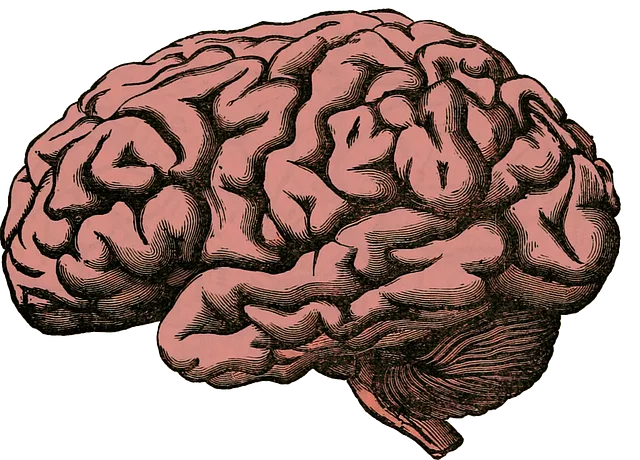The Kaiser Permanente mental health department in Boulder employs a data-driven approach, combining quantitative analysis with qualitative insights to evaluate programs enhancing mental wellness, such as education initiatives based on Mind Over Matter and Compassion Cultivation. They meticulously track pre- and post-program metrics via surveys, clinical notes, and patient phone calls to optimize services tailored to the community's unique needs. Phone-based evaluations, including structured interviews or surveys, are crucial for measuring impact and aligning programs with desired outcomes, facilitating continuous improvement in service delivery.
“Mental wellness program evaluation is a vital process to ensure effective support systems. This article offers a comprehensive overview of this critical aspect, particularly examining methods employed by industry leaders like the Kaiser Permanente Mental Health Department in Boulder. We explore their data-driven approach, highlighting the significance of collection and analysis in gauging program success.
Additionally, we delve into innovative tools, including phone-based assessment methods, that aid in measuring the impact and effectiveness of mental health initiatives.”
- Understanding Mental Wellness Program Evaluation: A Comprehensive Overview
- The Role of Data Collection and Analysis in Assessing Program Effectiveness (Focus on Kaiser Permanente Mental Health Department's Approach)
- Measuring Impact: Tools and Techniques for Evaluating Mental Health Programs (Including Phone-Based Assessment Methods)
Understanding Mental Wellness Program Evaluation: A Comprehensive Overview

Mental wellness program evaluation is a systematic process that assesses the effectiveness and impact of interventions designed to improve mental health outcomes. It involves a comprehensive overview of various methods, from quantitative data analysis to qualitative insights, to ensure programs meet their intended goals. The Kaiser Permanente mental health department in Boulder, for instance, leverages these evaluations to optimize services, catering to the unique needs of its community.
This evaluation process is crucial in understanding the efficacy of Mental Health Education Programs Design, incorporating Mind Over Matter Principles, and implementing Compassion Cultivation Practices. By employing diverse evaluation methods, organizations can gain valuable insights into participant experiences, program strengths, and areas for improvement. This data-driven approach allows for continuous enhancement, ensuring programs remain relevant and impactful in supporting mental wellness over time.
The Role of Data Collection and Analysis in Assessing Program Effectiveness (Focus on Kaiser Permanente Mental Health Department's Approach)

At Kaiser Permanente Mental Health Department, data collection and analysis play a pivotal role in evaluating program effectiveness. They maintain a robust system that captures pre- and post-program metrics, encompassing symptoms, functionality, and client satisfaction. This approach allows for a comprehensive understanding of each patient’s journey and the impact of their services. By analyzing these data points, the department can identify trends, measure improvements, and pinpoint areas needing enhancement.
Their method involves integrating various sources, including surveys, clinical notes, and phone calls with patients. The Kaiser Permanente mental health department phone number Boulder serves as a crucial touchpoint for gathering qualitative insights into patient experiences and outcomes. This multi-faceted data collection ensures that the department’s programs, such as Trauma Support Services and Stress Management Workshops Organization, are tailored to address the unique needs of their client base, fostering continuous improvement in mental wellness initiatives.
Measuring Impact: Tools and Techniques for Evaluating Mental Health Programs (Including Phone-Based Assessment Methods)

Measuring impact is a crucial aspect of evaluating mental health programs, ensuring that initiatives are effective and aligned with desired outcomes. Various tools and techniques can be employed to assess the success of these programs, including phone-based assessment methods. Organizations like the Kaiser Permanente mental health department in Boulder utilize specialized approaches tailored to their populations and goals.
Phone-based assessments provide a convenient and accessible means of gathering data from participants, allowing for regular tracking of mental wellness over time. These evaluations often incorporate structured interviews or surveys designed to capture changes in symptoms, functioning, and overall well-being. Such methods are particularly useful for large-scale programs, enabling efficient data collection while maintaining participant privacy and engagement. This approach aligns with the broader focus on Mental Wellness Coaching Programs Development and Risk Management Planning for Mental Health Professionals, offering practical insights for continuous improvement and enhanced service delivery.
Evaluating mental wellness programs is essential for ensuring their effectiveness and impact, especially in organizations like Kaiser Permanente. By employing data-driven methods, such as those demonstrated by the Kaiser Permanente Mental Health Department, we can gain valuable insights into program success. Integrating phone-based assessment tools further expands accessibility, making it possible to measure outcomes in diverse populations. For those seeking support, the resources available through the Kaiser Permanente mental health department Boulder can provide a crucial starting point, guiding individuals towards improved mental wellness.






